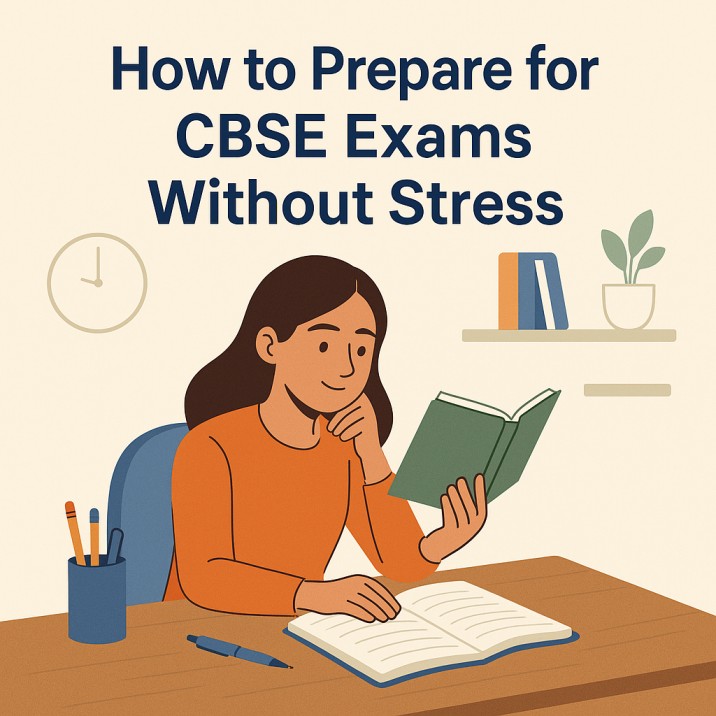
The importance of CBSE board exams makes them particularly stressful for students. But, while some amount of pressure is acceptable, excessive worrying can lead to problems with concentration, recall, and overall performance. With the right strategies and a bit of confidence, students can focus on preparation and overcome these negative feelings.
7. Keep Active and Stay Healthy
To support a productive mind, a sound body is needed. Strive to eat balanced meals, drink water, and snooze 7-8 hours a night. Stress and concentration can be alleviated by light exercises, meditation, and brisk walks. Caffeine and junk food often lead to bouts of restlessness and should be avoided.
8. Staying Positive and Trusting Yourself
Believe it or not, exams are also about strategy not just preparation. Positive statements and believing in oneself is a remedy for exam anxiety. Consistent hard work pays so be the kind of person who mindlessly disregards others in order to minimize comparison.
9. Ask For Help When You Need It
If you encounter a challenging concept, there is no shame in asking your teacher, parent, or other students for assistance. Learning is a key area where the group can support each other. Schools, even some of the best schools in Faridabad, offer extra classes, doubt-clearing sessions and practice tests designed to boost confidence in students preparation.
FAQs
Q1. How many hours should I study daily to prepare for CBSE exams?
This is not a question that can be answered definitively and set in stone. It’s more about the quality of work done. 4-6 hours of productive work is the average most people achieve.
Q2. For CBSE board examinations, are NCERT books enough?
Yes, NCERT books are the main resources to be relied for the CBSE examinations. However, for additional practice, you may consult other reference books.
Q3. What can I do to relieve my anxiety before an exam?
Meditation, focusing on the self, sleeping well, and even practicing a more positive outlook all contribute to a student reducing their anxiety before an exam. Preparing a few days ahead of the exam has shown to be more beneficial than cramming the night before.
Q4. Is it more beneficial to learn in the night or in the morning?
Your choice. Some learners find that their brains function best in the early hours of the day while it is ltenight that others are at their most active. Study during the time of day that you are most awake.
Q5. How crucial is it to revise before an examination?
Revising is crucial. Revision strengthens concepts, helps retain information, and most especially instills a level of self-assuredness before the final.
In Conclusion
Anxiety and stress are two concepts that are associated with the CBSE exams that a student does not need to have. Studying smart and creating a consistent review schedule complemented with fostering positive habits and the right mentality builds an environment in which students can excel. Exams do not define you nor is it the purpose. They serve as stepping stones.